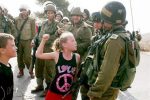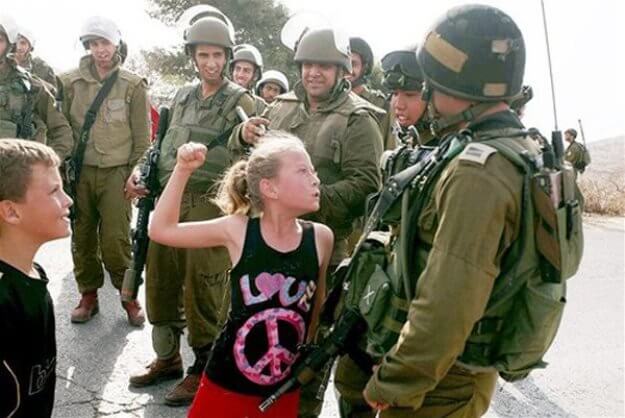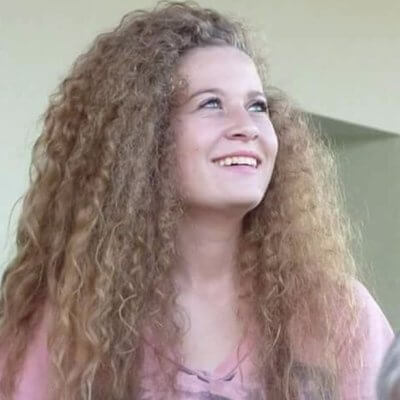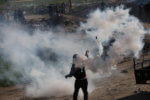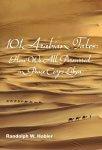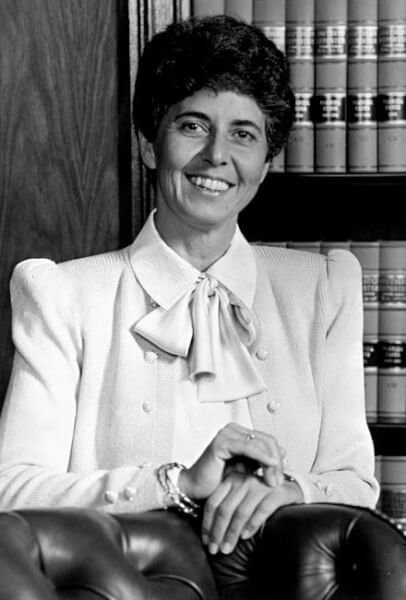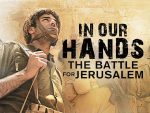Ahed Tamimi became HOPE in action as a seven-year old when she raised a fist and her voice against fully armed Israeli soldiers.
“HOPE has two children.The first is ANGER at the way things are. The second is COURAGE to DO SOMETHING about it.”-St. Augustine.
In December Ahed Tamimi, now sixteen was arrested and indicted on five counts of “assaulting security forces” after video of her slapping an Israeli soldier went viral.
By Eileen Fleming
Over the last few weeks, four hopeful females from the Tamimi family have been arrested for partaking in political demonstrations against the expansion of Jewish settlements on Palestinian property and in support of the release of Palestinians who have been jailed for protesting against the Israeli occupation.
For human rights activists, Ahed Tamimi is a symbol of resistance, a child heroine and a freedom fighter.
She has been compared to Malala Yousafzai who rose up against the Taliban and Joan of Arc who led the French army to victory before being captured by Britain and burned at the stake.
Zionists claim Ahed Tamimi is as a puppet of political parents and deserves stiff punishment for being a Palestinian Teenage Girl Who Slapped Soldiers
Just before Ahed Tamimi slapped the soldiers who invaded her yard, she learned that her 15-year-old cousin Mohammed had been shot in the head at close range during the demonstration happening a few dozen meters away an hour prior.
Mohammed Tamimi was previously disabled due to a rubber bullet in the face during another demonstration against Israel’s occupation of Palestine which unites the occupied and people of good conscience the world over.
On Friday Haaretz reported:
From the window of her [Ahed Tamimi] home at the edge of Nabi Saleh, a small village near Ramallah, you can see the stone wall that surrounds the luxurious building, under construction, that Mohammed climbed in order to get a view of the soldiers who were still inside. At that point he was shot in the head with one bullet from a distance of a few meters, and fell bleeding to the ground from a height of three meters (nearly 10 feet).
In the Haaretz op-ed “Joan of Arc in a West Bank village”, Uri Avnery concluded:
Ahed Tamimi was apparently chosen by a higher power for the role she is fulfilling. She’s strawberry blond, like most of the girls in her village, blue-eyed and brave. Abusing her in jail will only enhance her ability to impress others her age who are living under occupation.
In 2005, this American experienced sixteen days under Israel’s occupation of Palestine and a higher power invited me to join the good fight to end USA’s funding of Israel’s occupation of Palestine.
My way is by way of researching, writing and spreading Petitions and Letters such as this one to all world leaders:
We demand that Ahed and all Palestinian children are released from Israeli prisons now.
Sign HERE
In my previous post regarding keeping HOPE alive ,
I promised another excerpt from KEEP HOPE ALIVE, which follows.
As I was writing fiction in 2005 the characters Jack and Terese represent me and everything actually happened:

Ten interfaith friends from the U.S. branch of the Olive Trees Foundation for Peace arrived in Tel Aviv on Sunday morning, June 12, 2005, at 3 a.m. Everyone else settled in their beds at the Ambassador Hotel in East Jerusalem, but Jack was wide awake. After a shower, he wandered through the East Jerusalem streets in the dark, and reached the Western Wall just as the sun rose. He walked the empty Via Delarosa and wondered, “Where are all the Christians? I have seen videos of this place with packed streets, and this morning, I am totally alone.”
Jack wandered into the courtyard at the Anglican St. George’s Cathedral just before noon. He was staring at a statue of St. Francis in a winding, flower-filled courtyard, and thought, “Hmmm–Frankie–you remind me of Julianne. She always greeted everyone with ‘As Francis of Assisi said to Brother Dominic when their paths crossed on the road to Umbria: HI!’”
Jack lost himself in good memories before that Tuesday in September when everything changed. He shivered when he heard the snap of gum sound as loudly as Julianne’s ever had. He turned and saw a compact balding man of about fifty move by swiftly and enter the guest house. The man rang the bells everyday at noon, and had just descended the bell tower. Jack mused, I think that’s Vanunu. I had no clue he was so short.
When Julianne lost her life in a stairway of the Twin Towers that day in September, Jack fell off the wagon. While in rehab for the last time, he also began watching a lot of TV. He caught a show on the History Channel entitled “Sexpionage.” It was all about Russian female spies and one from the Mossad. Jack had a faint memory of hearing the name Mordechai Vanunu in 1986, but everything else he saw that night was news to him. The show informed him that Vanunu had been a low-tech in the underground Dimona nuclear plant in the Negev. When Vanunu had a crisis of conscience about being a cog in the making of weapons of mass destruction, he copped the keys to the restricted areas and shot two rolls of film which proved Israel had gone nuclear. He resigned and left the country, but did not develop the film until nearly a year later. Vanunu had ended up in Sydney, where he was baptized a Christian and met Peter Hounam, a journalist for the London Sunday Times. Peter flew Vanunu to London and began to check out the story, which took more days than Vanunu had patience to bear in solitude. Out of boredom, Vanunu ventured out and met an American named Cindy. He had no clue she worked for the Mossad. After a week of movies and museums, he traveled with her to Rome, where her sister had an apartment. When Vanunu entered the apartment, he was hit on the head, drugged, bound, and flung upon an Israeli cargo ship heading home. The Times broke the story just as Vanunu disappeared. The world did not know if Vanunu was alive or dead. They found out while he was being transported to his closed-door trial. Vanunu had been inspired to write “HIJACKED” on his palm, with the Rome flight number he had been on. His action agitated the Israeli government, and from then on, Vanunu was shielded from the world. Vanunu was sentenced to eighteen years for treason and was released in April of 2004, under house arrest and had been living in St. George’s guest house ever since.
The show also ran video from 1986 of Shimon Perez telling the world that Israel would never be the first country in the Middle East to go nuclear. Jack thought for a long time about whether he should approach Vanunu, who had set up his laptop underneath an umbrella table a few feet away. Jack never missed an opportunity.
“Pardon me; you are Vanunu, aren’t you?”
Vanunu nodded and shook Jack’s hand, while Jack remained standing; Vanunu returned to his laptop. “I want you to know how much I admire you, for your courage and for speaking the truth. I am leaving for the Galilee tomorrow, but if our paths cross when I return to Jerusalem; I would like to invite you to dinner.”
Vanunu nodded; Jack left and didn’t think anymore about it.
When he arrived back at the Ambassador Hotel, he saw Khaled Diab, Founder of the Olive Trees Foundation for Peace, in the lobby at a table meeting with a slightly built, incessantly chain-smoking man. As Jack approached, Khaled rose from his chair and greeted him like a well-loved son. Then he turned to his companion and told Jack, “This is Hasan Suwan. He is the coordinator for PARC, the Palestinian Agricultural Relief Committee. As you know, PARC has been doing all the assessing for the need for trees, and assuring the planting and upkeep is being done. He will travel with us to last season’s planting sites and help us discover next season’s. He was just telling me the problems the wall has caused him, because he is an Israeli citizen married to a Palestinian.”
Jack unabashedly asked, “Mr. Suwan, will you tell me more? I have come to Israel and Palestine in support of my good friend and second father, Khaled. I have sought the truth my entire life; please tell me everything about what life is like for you and yours in Israel Palestine.”
“Well, my wife has Palestinian papers, which means she cannot come with me into Israeli territory. Every six months, she must fill out papers and wait in line all day before she is told yes or no. The papers are her permission to leave Palestinian territory. I have Israeli ID, and I cannot go into Palestinian territories, because, I am told, the IDF could not ensure my safety if I went to visit my family! If an Israeli citizen takes a Palestinian in his car and is caught, he is fined five thousand shekels, and the car is confiscated for a month. Before the wall, my wife was able to walk to her mother’s home in less than fifteen minutes. Now, it takes an hour and a half to drive through the checkpoints, and one can be told, ‘No, you cannot enter. Go back from where you came.’ Then, one either does go back, or looks for another way around. In my town of Jabal Al Mukaber, the concrete fence divides our family. So far, the wall has uprooted over two million trees.” Hasan lit another cigarette and smirked as he told Jack, “For Palestinians, the worst tragedies make us laugh.”
As Suwan was speaking, Jack kept imagining thousands of Caterpillar tractors plowing up ancient olive groves, and wondered if his church was investing in the Caterpillar company. He wondered if the Olive Trees Foundation for Peace could ever keep pace with the demand for trees as the wall tore down even more.
On Monday night, the ten met over thirty of Khaled’s family in a restaurant and became fast friends. Jack, a serious Christian of the Beatitudes and struggling Episcopalian, broke bread with Muslims, who all agreed that all everyone really wanted was for their children to be able to live in peace. They all were educating their children in mixed schools, and struggled with the daily worry of children crossing checkpoints.
Khaled’s nephew, a Physician told Jack, “My wife and I try very hard to keep the reality of life from affecting our children. We teach them that we all must be peaceful to all others. But, they ask many questions that I cannot answer, such as, ‘Is President Bush a friend to Palestinians?’”
Jack bit his lip and went silent for the rest of the evening.
Tuesday, June 14, 2005: The Upper Galilee and a secular Jewish Road Warrior
While riding in the van with their ten friends, Jake and Terese Hunter took turns cradling the two urns that contained the ashes of Kat and Brigit. Kat had succumbed to ALS on Good Friday, in 2004, and Brigit entered eternity on that Pentecost Sunday. As the van drove the ten friends past the Mediterranean, Jake whispered to his wife, “I say we cast their ashes into the sea. Plus, I am ready to get my feet in some water. I cannot believe I am so near the Mediterranean and I am not going fishing! I am having withdrawal, Terese. I am going to split from the group after the Galilee and get some time in deep water.”
“That’s fine with me. But relax; you will be happy when we get into the Upper Galilee. We are staying in a cabin in the woods where David lives, high in the mountains, in the village of Harashim. When we return to Jerusalem, we can drop you off near the sea. And no, we are not throwing these ashes into the sea; I want to plant them both under an olive tree when we get to that church in Cana, where the Gateway High School’s Interact Club provided the funds for 500 olive trees.”
Jake squeezed his wife’s hand and leaned in close. “The church in Cana, where the new trees are now rooted, will be the perfect place to leave what was once Kat and Brigit. They both appreciated the fact that Jesus’ first miracle happened at the wedding in Cana, when Jesus turned the water into wine and kept the party going.”
Terese smiled and closed her eyes, and Jake looked out the window and thought about fishing. Jack had been introduced to Joy, a friend of Louise, who was accompanying them. Louise, the Jewish co-founder of the Olive Trees Foundation for Peace had many Jewish friends Jack was anxious to meet.
“So, tell me how a twenty-four-year-old from Nashville decides to move to Israel, where she knows no one. What made you do it, and how has it been these past seven months?”
Joy lit up as she told him, “My friends got so tired of me complaining about my political frustrations over the last election; they said, ‘If you don’t like it here, just leave!’ I had already been considering joining the Peace Corps, and when I got turned down because of a medical problem, I explored the possibility of going to Israel. I learned about, Aliyah, which means ‘going up,’ and the deal was hard to pass by. I get fifteen hundred shekels or about thirty-six hundred dollars a year in increments to help with my expenses. I can apply for unemployment benefits after seven months, as long as I look for a job. I just completed Ulpan, which was five hundred hours of Hebrew language immersion studies that took five months, five hours a day, for five weeks. I get subsidized rent and just moved out of the Absorption Center Projects. All the new immigrants get room, utilities, and three meals a day for the first five months in Israel. We also receive free medical care and all the doctors here are dedicated. We can go to the university with 100 percent of the tuition paid by the government. College is much cheaper here; it’s about three thousand to four thousand dollars a year. Until I am thirty years old, I can receive up to three years of education for my master’s degree.”
Jack wondered what he would do, if he were a young American Jew without many prospects at home.
After meeting more of Khaled’s family in Majd Al Krum, the ten friends split up to be hosted by various Israeli Jews and Palestinian Muslims. Louise, Jack, Jake, and Terese got into David’s van for the drive to their cabins in the woods of the village of Harashim. Jack and Jake were absorbed in the mountain vistas, but Terese was captivated by David, and did not take her attention off the tall, thin, angular man as he told his story.
“My mother is fourth-generation to this land; my father was born here while this land was still called Palestine. So, I am a forty-two-year-old Israeli-Palestinian secular Jew. In 2000, when Ariel Sharon went to the Al Aqsa Mosque and provoked the violent uprising, I cried, ‘Back off, man! Enough! It is enough already!’ When those young Palestinian innocents were killed, I knew I had to do something. I didn’t know what, but I began by knocking on doors throughout Rosh El Aim, a Christian-Arab community. I told them I just wanted to help somehow. Mostly they thought I was crazy; many today think it, too. I drove a three hundred mile radius, knocking on doors, offering to help somehow. One day, I was sitting with a bunch of Bedouin kids, and I began tapping my fingers on my thigh. The next thing, all of these kids were imitating me, and I realized I could bring them drums. I have friends who are musicians and artisans, and they have all offered an open hand. Without any assistance from the Israeli government, we have established centers of peace/ shalom/salaam that offer tutoring, health care, folk dance, music lessons, and artistic projects to the least and easily forgotten. We have built community between Israeli Jews and Bedouins, and Palestinian Christians and Muslims.
“It’s been five years now, and I continue to make daily rounds all the way into the Golan Heights. Many others have joined in and are keeping the projects moving forward, as I take on new ones. I have a friend named Hagit Breittman, a Jewish woman who has done the unthinkable! She opened her home to Bedouin woman, and they get together weekly to sew and, more importantly, to be a community. Right now, we are building community here, for security comes from community, not walls and gates! We absolutely have hope that one day, these Bedouin woman will travel to America with their embroidery and weaving. Hagit also started up a daily lunch service for the poor in the community. She provides food and comfort for hundreds everyday, and has done it all without government assistance.
“Today, the people are so in need of good leadership. If they can find it, they will follow. People need to be taught morals, boundaries, limits, and manners. This is the stuff Jesus taught, and he led the people. Today, people are lost in a violent cycle without basic human rights and respect for the other. Forget co-existence; we must have basic existence, basic human rights. Maybe when others see we care, they care too.”
Terese told David, “You remind me of another socially radical Palestinian Jew who went through Galilee, offering free healings and love.”
The following day, Khaled and his brother Hamid drove a ten-year-old Toyota up the long incline into the occupied Golan Heights behind David’s van. The Toyota began to smoke and sputter, and the brothers pulled off to the side of the road. David turned the van around as soon as he noticed, and as he exited the van to help the brothers, he announced, “If you need to stretch your legs, don’t walk off the pavement. There can be land mines anywhere the pavement ends.”
After a half hour, and after three liters of water were poured into the Toyota’s radiator, David led the brothers to the service station, and then they, too, crammed into the van and drove five more minutes to meet Moneer Sabagh at the elementary school where the Olive Trees Foundation for Peace had provided two thousand trees that were now thriving. Moneer was the sole founder of the Association for Improving and Developing the Family in what was once Syria, but is now the occupied Golan Heights. Moneer was a young, soft-spoken Muslim, who told them, “I am in a delicate situation. The Israeli government built our school, but the community here is occupied, and resentment runs high. I am trying to get them to care about what we have, to enrich it, so we can thereby enrich ourselves. Because they are occupied, they struggle with the question of how they can thrive under captivity. It is a difficult situation to understand–what life under occupation is about. I thank the Olive Trees Foundation for Peace for providing the trees David brought to us. We needed oaks and pines for the school campus, and we thank you for filling that need with the trees we asked for. They make a difference in the atmosphere, in the air we breathe and what we see, and in how we feel.”
June 18, 2005:
An hour late the ten straggled into the busy office of Abouna Elias Chacour. The Melkite priest, who was a three-time Nobel nominee, a 1948 refugee, and the founder of Mars Elias Educational Institute in Ibillin, welcomed them warmly and invited them to sit around the conference table in front of his desk.
“Tell me why you have come here and what you hope to do. Then, I will share my story with you.”
The youngest of the group said, “I want the win-win. I want peace for everyone, and I know it starts with every individual. I want to be the change I want to see in the world. I live in peace with everyone and I want the win-win.”
Abouna Cahcour roared, “Yes, exactly! This is the only way: win-win for everyone. Anytime someone has to be right, there is oppression. With a win-win, there are always human rights. My school serves forty-five hundred interfaith children, and the criteria for employment here is an open mind and open heart for all of Abraham’s sons and daughters.”
Jack thought Chacour looked and spoke like an Old Testament prophet; he had a long gray beard and a huge presence, packaged in a middle-aged spread. Jack often heard music in his head; and it was U2 this time:
Lay down your guns
All your daughters of Zion,
All your Abraham sons.
I don’t know if I can take it,
I’m not easy on my knees.
Here’s my heart; you can break it.
I need some release
Release
Release
We need Love and Peace
Chacour mesmerized his audience stating, “I am a Palestinian Israeli who lives for peace and reconciliation. The problem here is not about the land. There is a blockage between Arabs and Jews. It must end. We need to explore a third way to rise above the conflict. There are three million Palestinians living in refugee camps! This injustice must come to an end. Once, we Jews and Arabs were partners and friends. The only way out of this conflict is to rise above it. You Americans are still too young! You think money and weapons solve problems! Only love and respect can do that. You reach for the moon, but not your neighbor. What we need from you Americans are smiles of hope. We need you to plant hope. We need you to visit us, so that we would know we are not alone. Do simple things, and always do them with a smile. Don’t rely too much on God! You know what He wants; now, DO IT!”
Terese thought, “Do something, do something, do something…but what?” [End Excerpt]
Eileen Fleming is Senior Non-Arab Correspondent for USA’s TADN
Eileen Fleming produced the UNCENSORED
“30 Minutes with Vanunu” Mordechai, Israel’s nuclear whistleblower
Contact her HERE
- Vanunu still has more nuclear secrets to spill, Israeli court declares - December 29, 2021
- 9/11 and a 20th Reflection of That Day - September 5, 2021
- Mordechai Vanunu: Final Annual Update and this Writers Next Steps - June 19, 2021













